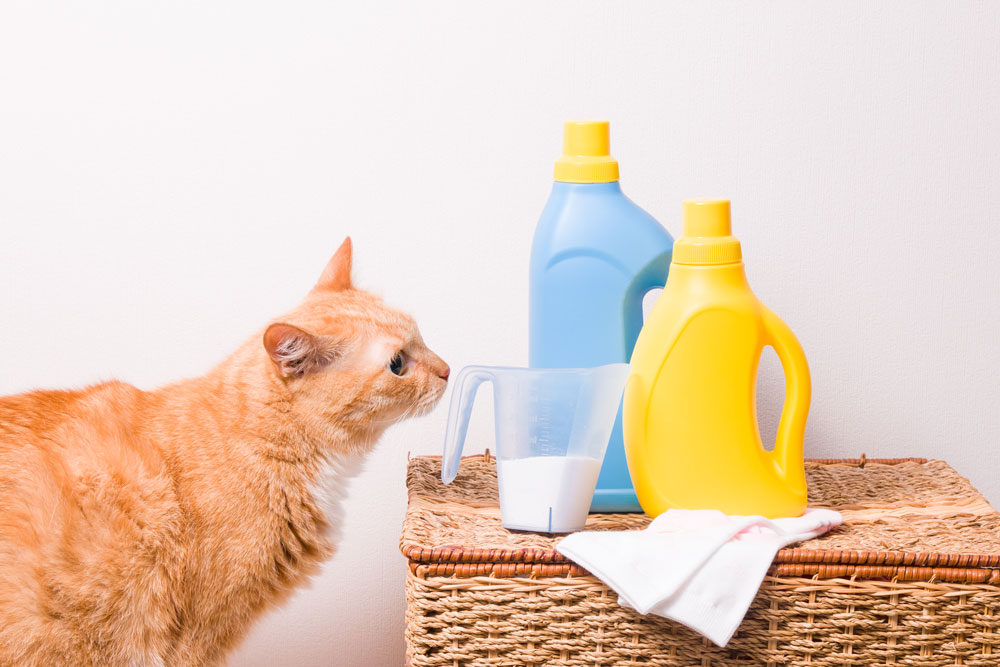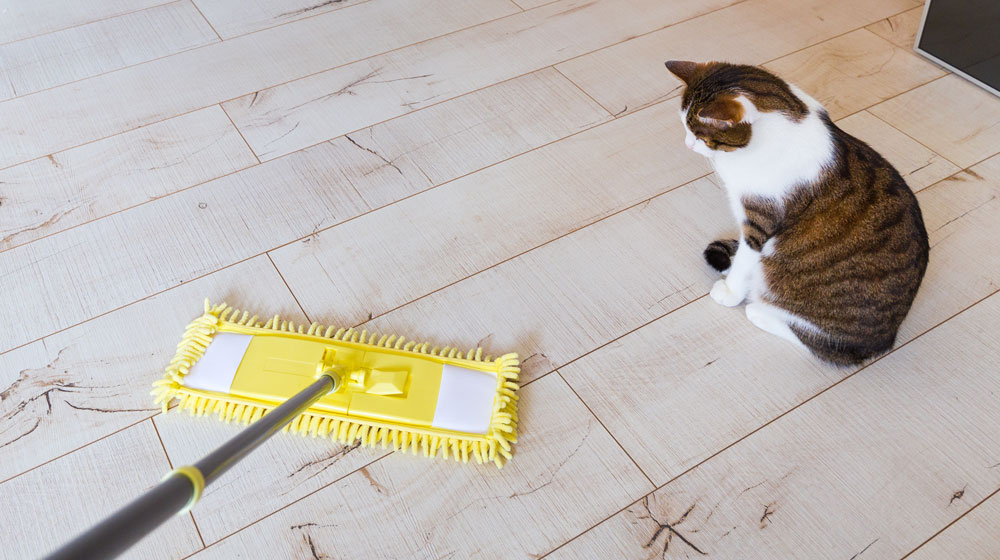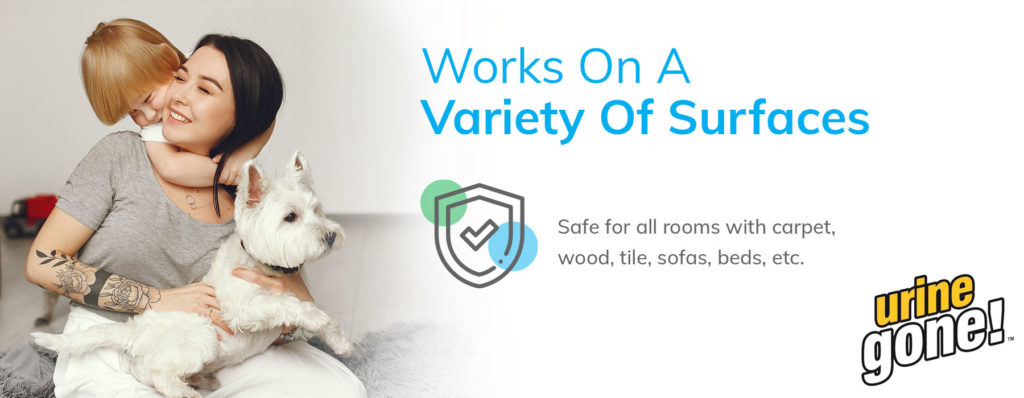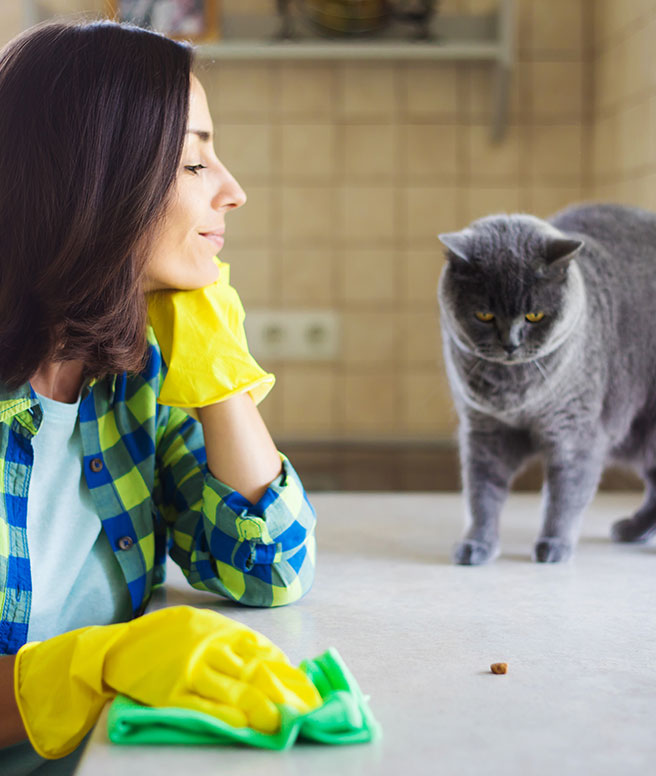Everyone likes to have a clean, allergen-free, and sanitary environment, whether that’s at home, at the office or your business, or in public locations.
Household cleaning products are typically diluted versions of bigger, more powerful industrial cleaners, products, and chemicals so that the everyday user won’t have to worry about any adverse effects or reactions.
But can the same be said for your pets?
Animals are biologically different from us, with many of their senses superior to that of humans.
So how can we be sure that our existing cleaning products don’t affect them?
How Do Popular Cleaning Chemicals Affect Our Animals?
From soaps to detergents, toilet bowl cleaners to surface wipes, the typical North American household is chock-full of different products with different chemical compounds that may not harm us but can harm our cats, dogs, bunnies, birds, etc.

Smaller, self-grooming animals like cats and bunnies are more likely to be affected by chemicals around the house because they are more prone to cleaning themselves and accidentally ingesting chemicals that may remain on the skin or fur.
Dogs and larger animals, although more resilient and able to metabolize compounds differently, still do clean their paws and lick surfaces.
A helpful tip when it comes to your stronger products is to properly dispose of them when they are done. Much like you wouldn’t keep over-the-counter medication open in front of your child, maintain the same diligence when it comes to cleaning products and your animals.
Here are some popular cleaning chemicals and products, that can cause problems:
- Ammonia-based cleaners are highly toxic to your pets and can create allergic-like reactions in your animals. Oven, window, and drain cleaners typically have ammonia in them and can lead to an uncomfortable burning sensation in the throat and nose.
- Bleach can cause issues if it is not diluted properly. Look for oxygen or hydrogen peroxide-based bleach when you can, which is less harmful to not only your dogs but also you and your family
- Laundry detergents can cause skin irritation, legions, and tender itchy spots on your pets. Fragrance-free, pet-safe and dye-free detergents should be used on blankets or soft toys that your animals use to keep them itch and irritation-free. Avoid detergents with 1,4-Dioxane which can also be found in dryer sheets, that has shown to affect the kidneys and livers of dogs and cats.
- Essential Oils can cause intestinal and respiratory problems, mainly in Cats. Avoid using them in locations where pets can inhale diffused oils or can ingest the oil itself.
- Phthalates are commonly found in all-purpose and deodorizing products that have a powerful scent. They can even be present in your pet’s toys. These can wreak havoc on your pet’s liver and kidneys and cause reproductive issues as well.

A Solution To Potential Pet Pain
With all the different types of chemicals and solutions listed above interacting with one another in one’s home, you could potentially be creating a chemical minefield for your pets to navigate through. Choosing the right products to use can save your pets from health problems and reactions.
At Good Harbor Labs, our pedigree for sustainability in the water treatment space has trickled to our consumer pet products ensuring that they can be used without irritating or harming our pets.
For more information on how to clean your home spaces in a way where your pets can roam around without worry, check out our animal and pet-friendly solutions.

